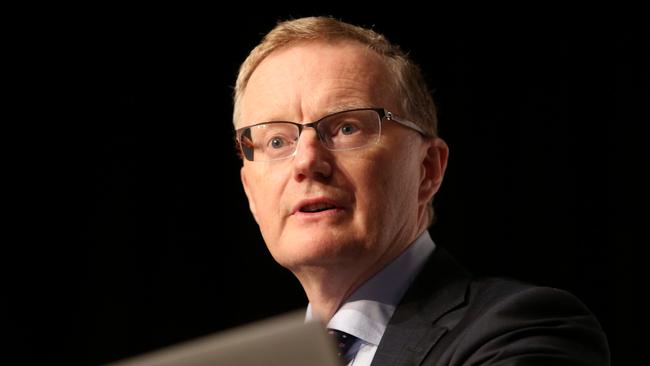IMF warns that Australia’s household debt hangover will hurt
Rapid growth in household debt works as a short-term sugar hit to the economy but leaves a long hangover.

Rapid growth in household debt works as a short-term sugar hit to the economy but leaves a long hangover with reduced growth, higher unemployment and the risk of a banking crisis, the International Monetary Fund has warned.
The fund identifies Australia as one of the countries most exposed, with household debts rising to more than 100 per cent of GDP compared with an advanced- country average of 63 per cent.
“In the short term, an increase in the household debt-to-GDP ratio is typically associated with higher economic growth and lower unemployment, but the effects are reversed in three to five years,” the IMF says in its latest review of global financial stability. “Moreover, higher growth in household debt is associated with a greater probability of banking crises.”
Reserve Bank governor Philip Lowe yesterday repeated his concern that housing debt has been outpacing the slow growth in household incomes and is now limiting growth in household spending.
“Slow growth in real wages and high levels of household debt are likely to constrain growth in household spending,” he said.
Announcing that the bank was keeping its benchmark cash rate at the record low of 1.5 per cent, where it has now been sitting since August 2016, he said risks in the housing market were being contained by banking regulator the Australian Prudential Regulation Authority, which had tightened supervision of real estate lending.
The IMF’s research shows that on average, a 5 percentage point rise in household debt to GDP over a three-year period foreshadows weaker growth in GDP, which would be 1.25 percentage points lower in three years’ time.
Reserve Bank statistics on household balance sheets show that total debts have risen from 123 per cent of GDP to 137 per cent over the past five years, or a 14 percentage point increase.
The research shows that increases in household debt are associated with weaker consumption and significantly higher unemployment over the following four years.
Although the IMF study is covering global trends, it uses Australian data to show that the effect of any fall in income on household consumption is almost twice as big for people whose debts are five times as large as their annual income as it is for those with debts matching their income.
The IMF study showed that countries with rising household debts were significantly more likely to suffer banking crises within the next three years.
It noted that there were steps countries could take to reduce the risk. “Better financial regulation and supervision, less dependence on external financing, flexible exchange rates and lower income inequality would all attenuate the impact of rising household debt on risks to growth,” it said.
Although house price growth is easing in Sydney, the housing building boom appears to be gaining a second wind, after dipping steeply in the early months of this year.
Although the Reserve Bank remains concerned about household debt and weak wage growth, Dr Lowe’s comments following yesterday’s board meeting show he is becoming more confident in the improving outlook for the Australian economy, saying growth will gradually improve over the coming year.



To join the conversation, please log in. Don't have an account? Register
Join the conversation, you are commenting as Logout